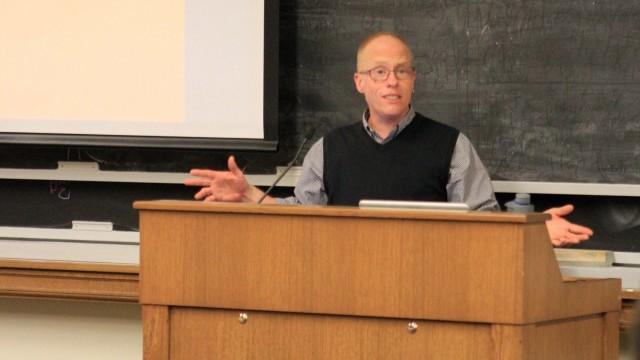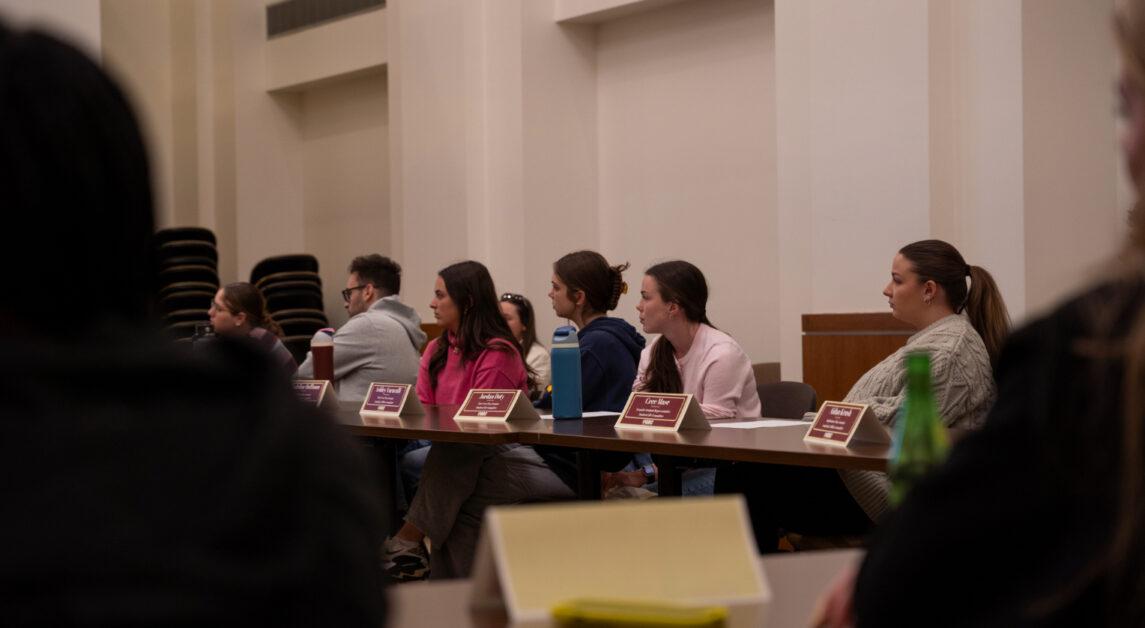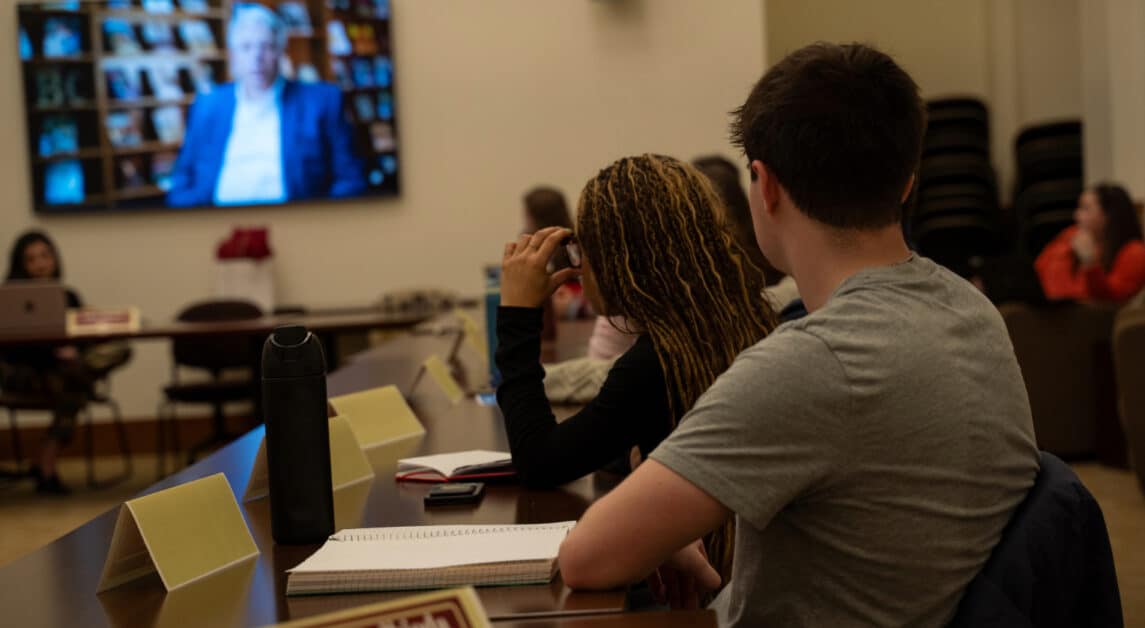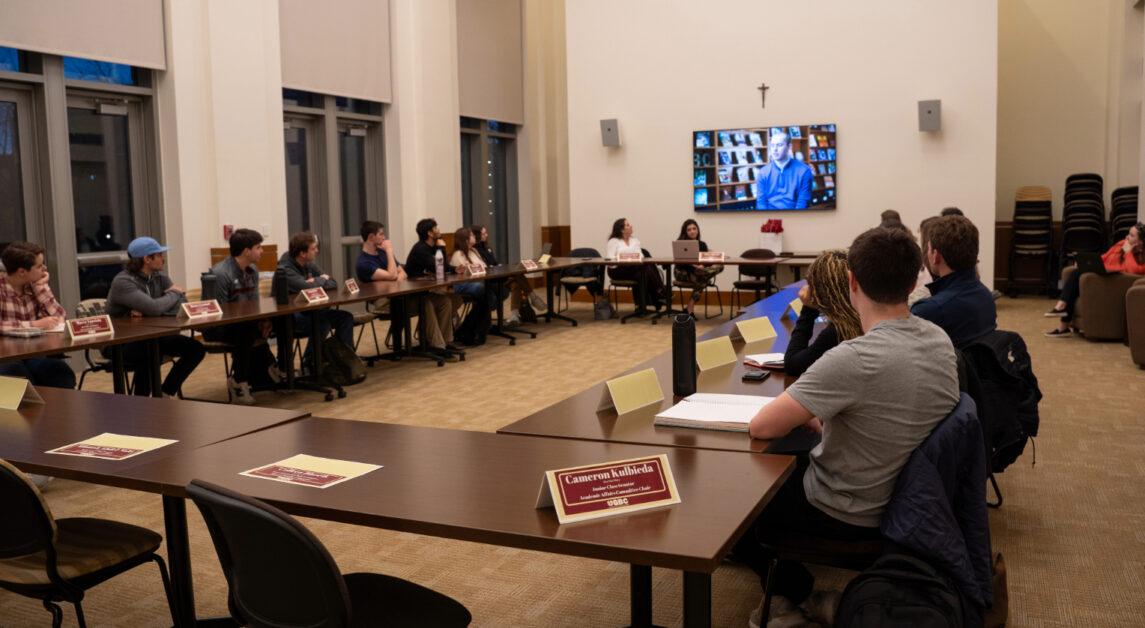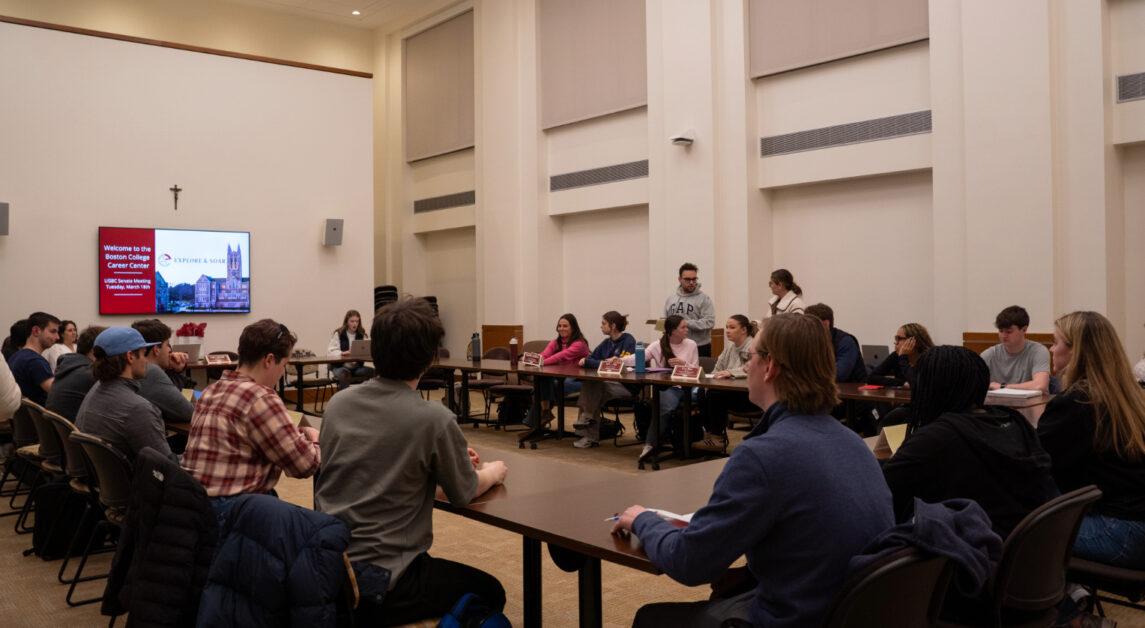Writer, speaker, and activist Eli Clare addressed Boston College students Thursday night about stereotypical images of disabled people and how these unfair assumptions have led to lasting problems for the disabled community.
“Label jars, not people,” Clare said, pointing to a PowerPoint image that quoted this line.
Clare, who was born with cerebral palsy, holds a B.A. in women’s studies from Mills College and an M.F.A. in creative writing from Goddard College. He has published numerous books, essays, and works of poetry.
Despite his life’s successes, Clare has been stereotyped in the same ways that many disabled people are. In particular, Clare emphasized the stereotypical image of the “supercrip.”
As Clare described, supercrip stories consist of disabled people doing incredible things, including hiking the Appalachian Mountains or batting .600 on the baseball team. Clare noted that these stories, however, can also include the more mundane, such as a disabled person getting a boyfriend or girlfriend, or a disabled person learning to drive.
In supercrip stories, said Clare, the disabled person has overcome something to accomplish either a great feat or an everyday task.
“I always pause when I hear [the word] ‘overcome,’” Clare said. “Is it that we no longer have the disability? … What exactly is being overcome?”
Clare asserted that these stories turn disabled people into inspirational symbols, and they become inspirations because supercrips exceed society’s expectations.
“Why am I being inspired?” Clare asked those in attendance.
Clare recalled finishing last in numerous high school cross-country races. Regardless of the outcome, he received standing ovations from fans while not even the first-place finisher would receive this praise. It got old fast.
Clare then explained that an individual with a disability is seen as broken. As a consequence, there are people who will often say that disabled people need to be fixed.
The response from non-disabled people, Clare said, is mostly pity and tragedy. So when a disabled person transcends expectations, he becomes the inspiration commonly portrayed in supercrip stories.
On the opposite side of supercrip stories are stories of “ableism.” Rather than perpetuating stereotypes, explained Clare, ableism stories raise issues of social justice for disabled people.
In his own ableism story, Clare talked about occasions in which he failed timed tests because he could not write fast enough due to his impairment.
According to Clare, the general public does not hear about ableism stories often enough.
Cases of ableism tend to describe disabled people as childlike, asexual, violent, dangerous, and, by proxy, incapable. As a result, disabled people are impacted negatively when it comes to gaining equal opportunity in education and employment.
For example, the national unemployment rate hovers around 5 percent, but as Clare mentioned, the unemployment rate in the United States for disabled people is well above the national average—around 15 percent.
Likewise, these misguided views of disabled people affect how they are treated in education.
Although Clare can only write four words per minute, he has published an impressive collection.
Clare expressed his disappointment for the bevy of supercrip stories, which grows the stereotype that disabled people are overcoming the odds, and the underwhelming number of authentic ableism stories, which bring social issues for disabled people to light.
During his talk, Clare turned to a poem by Lynn Manning called “The Magic Wand.” Manning, a blind playwright and poet who also medaled in the Paralympics, writes in his piece about facing a myriad of stereotypes—all of which are shaped by outside forces. This is a reminder, said Clare, of how powerful external perception can be.
“None of us will ever find a home in stereotypes,” Clare said. “I know I won’t.”
Featured Image by Savanna Kiefer / Heights Editor

